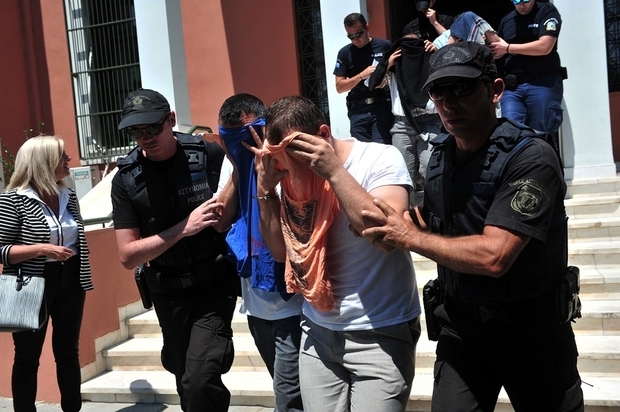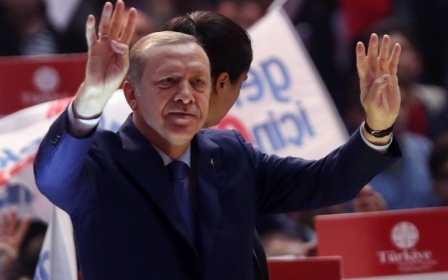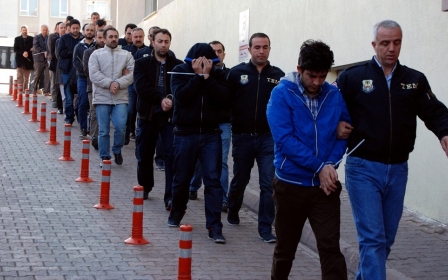Greece blocks second request by Turkey to extradite coup plotters

A Greek court on Thursday blocked a second extradition request by Turkey for two soldiers of a group of eight who had fled to Greece following the failed coup attempt last July, court officials said.
The decision is likely to anger Ankara, which alleges the men were involved in efforts to overthrow President Recep Tayyip Erdogan and has repeatedly demanded they be sent back.
Turkey had issued a second extradition request for the men, which it has branded traitors, in January after Greece's top court ruled against extraditing all eight.
Strained relations
The drawn-out case has highlighted often strained relations between Greece and Turkey, Nato allies that remain at odds over issues from territorial disputes to ethnically split Cyprus.
Turkey has previously threatened measures, including scrapping a bilateral migration deal, with Greece if the men are not returned.
The three majors, three captains and two sergeant-majors landed a helicopter in Greece on 16 July and sought asylum, saying they feared for their lives in Turkey where authorities have purged large numbers from the military and civil service. They are to be held in detention until their asylum applications are processed.
Addressing the court on Thursday, the prosecutor acknowledged the ruling "may cause discomfort" in Turkey but said the reasons for rejection had not changed since January.
'If it looks itself in the mirror, modern Turkey will understand why one denial comes after another - not only from Greece but also from other countries - for the release of alleged coup plotters' – Court prosecutor
"Has torture stopped? Persecutions?" he asked. "If it looks itself in the mirror, modern Turkey will understand why one denial comes after another - not only from Greece but also from other countries - for the release of alleged coup plotters."
The eight Turkish soldiers' asylum applications were rejected in July but are currently being appealed. Earlier this year, Turkey described Greece's top court's decision to not extradite the eight soldiers as "political", and threatened to cancel a migrant deal with the European Union.
In reply, the Greek government said in a statement: "The judiciary is independent in Greece. Court decisions are respected and binding … Greece condemned the coup right from the off and made clear that the country does not welcome putschists."
Ongoing purge
Last week, Turkish authorities suspended more than 9,000 police force personnel and rounded up more than 1,000 "secret imams" in an ongoing purge of those with alleged links to the US-based cleric, Fetullah Gulen. Police headquarters in Ankara announced the suspensions in a statement on its website late on Wednesday evening, citing links with Gulen's network.
Since the attempted coup, thousands of public sector workers have been rounded up by the Turkish authorities in a bid to remove individuals allegedly affiliated to the Gulen movement.
Erdogan has suggested that Turkey could bring back the death penalty to "give justice" for victims' families who were killed in the 15 July coup plot. Restoring the death penalty is a move that could end Turkey's hopes of joining the EU - the country abolished the death penalty as part of its bid to join the bloc.
New MEE newsletter: Jerusalem Dispatch
Sign up to get the latest insights and analysis on Israel-Palestine, alongside Turkey Unpacked and other MEE newsletters
Middle East Eye delivers independent and unrivalled coverage and analysis of the Middle East, North Africa and beyond. To learn more about republishing this content and the associated fees, please fill out this form. More about MEE can be found here.




